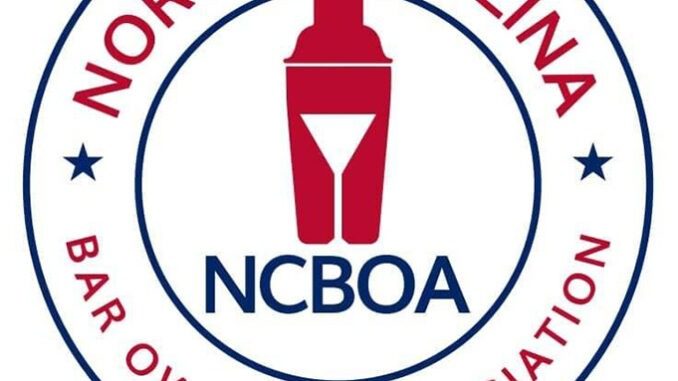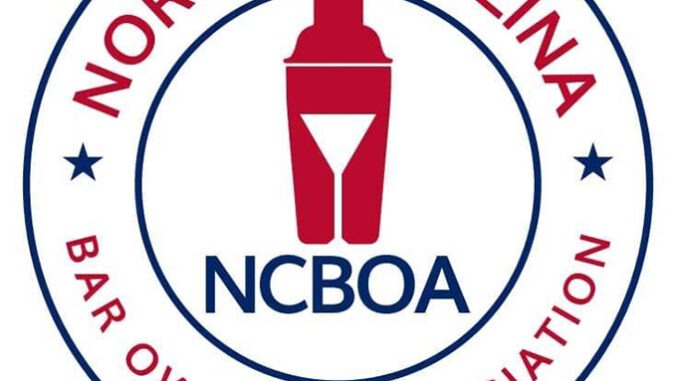

RALEIGH — Board members of the newly formed NC Bar Owner’s Association have filed suit against Gov. Roy Cooper over executive orders that have kept most private bars and clubs closed since March of 2019.
North Carolina Bar Owners Association (NCBOA) is a bipartisan, nonprofit 501(c)6 organization founded by bar owners from across the state seeking equal treatment when it comes to ABC permits and related laws.
The group is represented by Chuck Kitchen of Kitchen & Turrentine, PLLC. Last year, Kitchen also represented other health club and gym owners fighting the governor’s pandemic orders restricting their businesses.
At the heart of the NCBOA’s lawsuit is the argument that the governor’s orders regarding bars violate a constitutional right for a person to work and earn a living. The lawsuit also cites differential treatment of bars.
“Restaurants, private clubs, breweries, wineries, and distilleries have been allowed to open and operate for onsite indoor consumption of alcohol, while bars have been ordered to close or have their businesses severely limited by draconian restrictions that make the operation of bars unprofitable,” the Fourth Cause of Action in the lawsuit reads.
In addition, the lawsuit also alleges there is a separation-of-powers issue with the governor’s pandemic-related executive orders.
The lawsuit’s plaintiffs are all founding board members of the NC Bar Owner’s Association and include Danielle Bull and Tiffany Howell from the Winston-Salem area, Jay Ruth of Wilmington, Drew Wofford and Bryan Wheelock from Greensboro, Benjamin Reese of Asheville, Matt Morel of Emerald Isle and Tony Basford of Raleigh.
“One of the major concerns that we have is that these orders are completely unconstitutional,” NCBOA board member Jay Ruth said of the lawsuit. “They were not approved by the Council of State and we would like to see what the court system thinks about that, and I don’t believe it’s been challenged until now.”
Thirteen of Cooper’s executive orders are named in the lawsuit, several of which are deadline extensions of a previous order. The lawsuit includes an injunctive relief request for a permanent injunction which would bar the governor or the state from enforcing executive orders.
Unlike other suits regarding Cooper’s COVID-19 related orders, this lawsuit is asking for damages “in excess of $25,000.” Kitchen told North State Journal that the $25,000 is “a term of art to indicated that the damages requested will be in a range to be in superior court” and the final amount will be “far in excess of $25,000 per plaintiff.”
This is the second lawsuit filed on behalf of a bar or club. In December, Pacific Legal Group filed a lawsuit on behalf of Club 519 targeting the disparate treatment of private bars in the governor’s orders versus other similar businesses.
Cooper’s office did not respond to North State Journal’s request for comment.
Ruth indicated in an interview with North State Journal that they had attempted several times to contact the governor, but “he has not responded to us in any way, shape, or form.” He also said NCBOA has hired lobbyist Logan Martin of Skyline Strategies to represent their interests when the General Assembly reconvenes this month. NCBOA hopes to see work on deferment of sales-and-use tax for a year as well as help with liquor license fees.
“We all paid our liquor license last year, which for each location is close to $2,000. I have two locations I paid $4,000 for that I haven’t been able to use,” said Ruth. “That is the case with everybody who owns a private bar in North Carolina. So, we would like to see either a forgiveness of the liquor license fee next year or some kind of prorating to help us out in that aspect too.”
In terms of the statewide alcohol curfew, Ruth said of Cooper, “First he cut off our feet, then he cut off our ankles, then he cut off our knees.”
“The folks who own private bars that are able to open outdoors, a 9 p.m. curfew is devastating. It is not reasonable. It’s not feasible,” said Ruth.
I think it was just a way to appease people to say, “Hey, look I didn’t close indoor dining. I’m letting people go to nine o’clock,” and then he backs that off with this cocktail-to-go program which is a disaster,” Ruth said. “It’s not something that anyone in the private bar industry is interested in.”
Ruth said that the governor’s to-go cocktail order raises a bar’s insurance significantly and said that the N.C. Sheriff’s Association has pointed out the order runs afoul of state laws governing transport of alcohol. The ABC Commission’s upcoming January meeting will address a proposal to make the mixed beverage transportation rules permanent.
Ruth said one of the biggest inequities in the whole situation is that bars are now “literally the only business in the state of North Carolina that cannot allow anyone indoors.”
In terms of how many bars are struggling, Ruth said it is hard to tell as the ABC website is slow to update the license status of the private bars. He said that for 10 months around 1,063 private bars have borne the brunt of the governor’s orders and that the whole industry is “on the brink of disaster.”
“And what people don’t realize is we are more than just a bar. We employ people. We pay taxes. We’re a sense of community. We’re a sense of family. I mean, we have regulars,” said Ruth.
Ruth said that his business and those of NCBOA members are much needed social interaction hubs that sponsor softball teams and events for cancer research.
“We’re more than just a place that people come in and drink, and I think the community at-large needs to know that,” Ruth said.



